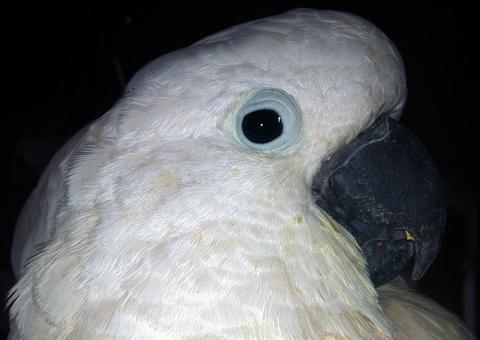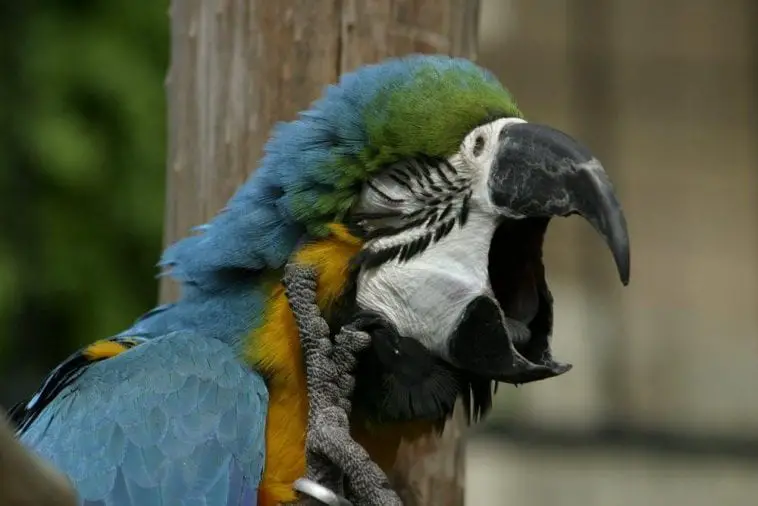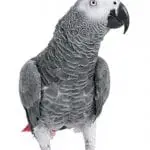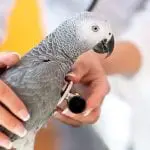Parrots are some of the most rewarding types of pets to have for any kind of pet enthusiast. They are generally very appealing pets that will provide you with all of the love and care you need from a bird. On top of that, parrots tend to be friendly, compassionate, and playful pets. They are downright fun and silly. However, those are only true if you actually take good care of your parrot.
Taking care of a parrot can be a bit tricky because of how delicate these pets are. Birds are quite susceptible to a lot of different health conditions because of how sensitive they are. And when it comes to sensitivity, there is no arguing the fact that parrots and birds really do have respiratory systems that are extra sensitive and can easily fail due to any sort of complication. As such, there is a need for you to make sure that you know what to do in case your parrot starts showing signs of respiratory problems. This includes heavy breathing.
How to know if your parrot his breathing heavily
Before you can actually do anything about your parrot’s heavy breathing, the one thing you should actually do is to check if the bird is actually breathing properly. It can be quite difficult to tell if the bird is breathing properly if you are not observant enough of how it breathes. However, if you closely inspect the parrot and observe and listen to the way it is breathing, you can actually tell whether it is breathing normally or heavily.
Simply looking at the parrot and checking how it is breathing can tell you how well it is breathing. If it is breathing through its mouth, then it obviously is not able to breathe through its nose. Listening also helps as clicking sounds or rattle kind of a sound can tell you that it is actually having problems with its breathing. Moreover, because it is having trouble with its breathing, it will most likely feel weak and lethargic compared to how it normally is. Moreover, if it is coughing or if it is not eating properly, there is a chance that it is sick and that it is connected to its heavy breathing.
What are the possible causes of heavy breathing in your parrot?

Parrots or birds, in general, require more energy. That allows them to absorb more elements from the air it breathes. In a sense, they are very efficient breathers. However, the problem is that their efficient breathing is actually a double-edged sword that can also be bad for the parrots. If it is efficient at taking elements out of the air, then it is also susceptible to the toxins that can be found in the air. In that regard, they can easily suffer from respiratory problems and are more likely to suffer from illnesses associated with that because of how they do not have the strongest immune system among animals.
Here are some of the common causes why your parrot is breathing heavily:
Aspergillus
Aspergillus is one of the more common types of respiratory infections that birds suffer from. This happens when a fungus or tiny spores in the air pass through the parrot’s respiratory system and will cause an infection in the upper respiratory system. This is a pretty serious type of infection, as it can take a few months for the parrot to get better, even if you actually treated it properly. Open-mouthed breathing or tail bobbing are some of the more common symptoms related to aspergillus.
Smoke
Smoke coming from all types of sources can easily cause heavy breathing in your bird. More often than not, the smoke may come from a cigarette or anything that is combusted. The smoke that travels in the air and through the respiratory system of the parrot contains a lot of chemicals that can very well lead to infections and complications. As such, if someone in the household is smoking, it is better to make sure that the parrot’s cage is far from where people usually smoke.
Teflon
Teflon is the chemical coating you can usually find on the surface of cookware to make it nonstick. However, you can also find Teflon in a lot of different materials as well. In this case, it is more often the Teflon found on your cooking pan that can cause respiratory problems in your birds. When Teflon reaches a high level of heat, it can produce a gas that might not be too harmful to a human but is very toxic to a parrot or to any kind of bird in general. As such, be sure to keep the bird away from your kitchen if you are using Teflon-coated cookware so as to make sure that the gas produced when you are cooking does not get too close to the bird.
Aerosol
Aerosol sprays or any kind of spray that contains a lot of chemicals can be very dangerous to your bird’s respiratory system and can cause your parrot to breathe heavily. That is because parrots are not naturally built to withstand the chemicals that are found in aerosol sprays and in any other spray for that matter. This is why it is very important that you keep any kind of spray away from your parrot. Cleaning products are included and should be kept as far away from the parrot as possible.
Aside from aerosol products, it is important that you also make sure you keep any sort of chemical-based product from the parrot. This includes scented candles as well because of how such products contain chemicals that can very well cause respiratory infections in your parrot.
Treatment

There are a lot of different kinds of treatment options for you if your parrot is suffering from respiratory problems that are causing it to breathe heavily. Here are some of the options to look at:
Antibiotics
Antibiotics should only be administered to your bird if it is suffering from respiratory infections that are bacterial in nature. It is said that about 80% of the respiratory problems found in parrots are bacterial. As such, make sure that you keep antibiotics in handy so that you can easily treat your parrot if it is breathing heavily due to a bacterial infection.
Antifungal
If the respiratory problems are caused by aspergillus, then you should administer an antifungal solution that can help treat your parrot’s breathing problems. Itraconazole and amphotericin B are good options for you to use. However, before using an antifungal solution, be sure that the respiratory problems are indeed caused by aspergillus.
Go to a vet
If you have doubts about what is causing the respiratory problems or if the bird is still breathing heavily for reasons you simply cannot tell, then it is time to bring the parrot to a vet. While it is good to have at-home remedies and treatment you can use to help your parrot, there is nothing better than going to a medical expert to have the parrot checked. After all, there is still a risk that your bird is suffering from respiratory problems caused by anything more serious than bacteria, fungi, or chemicals.



